[Translated][Mission] Reading as a Bridge Between Nations: My Journey with Korea's Cultural Resources
2025-08-21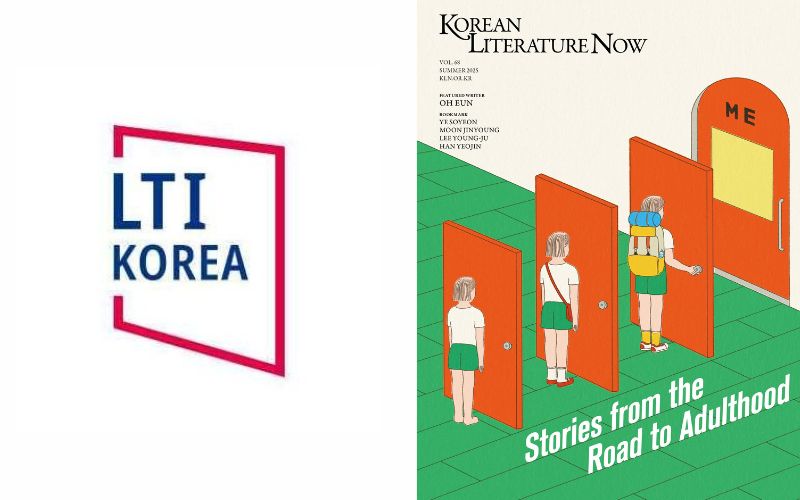
The World Library and Information Congress is held annually, organized by the International Federation of Library Associations and Institutions (IFLA), and is considered the most important international event in this field. The congress provides an opportunity for countries to communicate and discuss major and emerging issues related to the role of libraries, such as digital transformation and heritage preservation.
This year, the congress is being held in Astana, the capital of Kazakhstan, from August 18 to 22. Korea has long been one of the most active participants in the event, having hosted it in Seoul in 2008, and is scheduled to host it again in 2026 in Busan.
The most important source and main gateway for anyone interested in Korean literature is the Literature Translation Institute of Korea. It is a government-affiliated institution that began its activities in 1996 with the aim of promoting Korean literature and culture abroad. The institute has played a central role in making Korean literature accessible to readers worldwide in multiple ways.
In this article, I will share my experience with the diverse translated resources provided by Korean institutions and their impact on my understanding of Korean culture.
A few years ago, while searching for translated Korean books not available in local libraries in Egypt, the institute’s vast online library stood out to me. It offers translated books in many languages, including English, French, and Spanish. Their book collection includes poetry, novels, short stories, historical works, classics, and many other carefully translated works.
The library also provides an online library card that can be used through the Libby app, allowing readers to borrow three books at a time for two weeks, with an option to extend the borrowing period for an additional two weeks. The service makes recent publications available upon release, not limited to older or classic works.
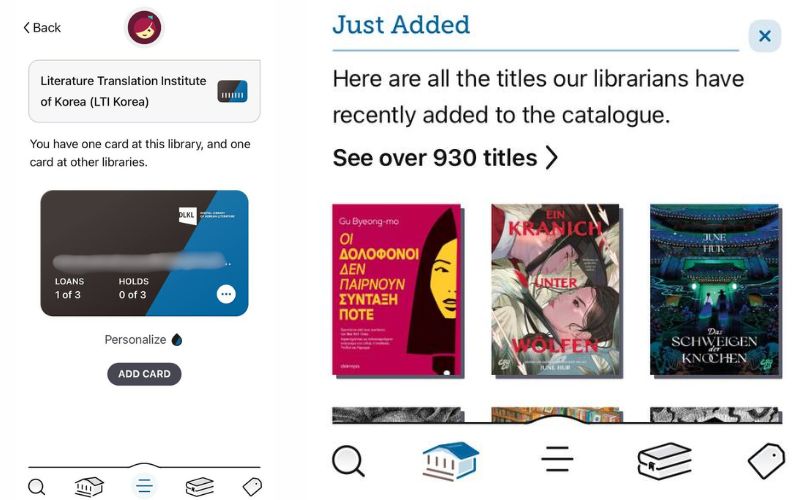
In addition to the library, the institute publishes Korean Literature Now, a quarterly magazine issued four times a year. It includes the latest news related to the Korean literary field, along with translated excerpts from poetry and books that are either not yet published in translation or still in progress, introducing readers to new writers and their works.
The translated poetry featured in the magazine is particularly noteworthy, since, unfortunately, translated Korean poetry remains limited compared to novels.
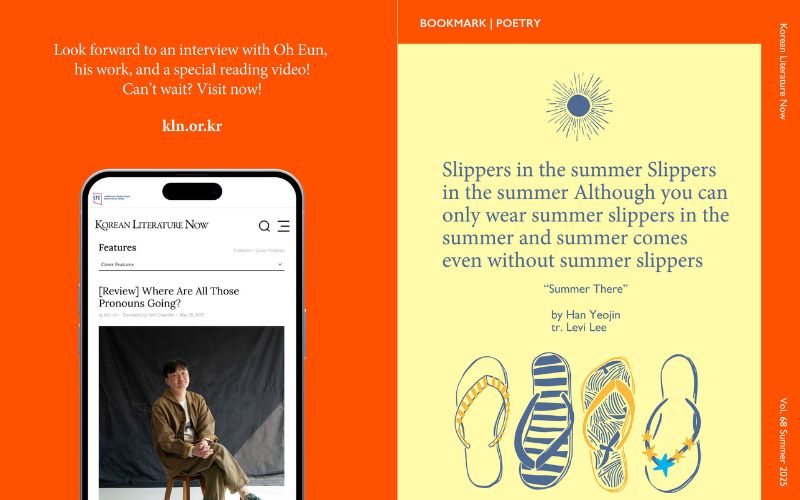
The institute also operates the Korean Literature Wave platform, a large database containing information on Korean authors, their works, and publishers. It facilitates communication between Korean publishers and international counterparts to identify major new works for translation.
The institute’s online page also encourages interaction with readers through competitions, surveys, and small prizes. One notable example was a “Bingo” competition held alongside the Seoul International Book Fair, which encouraged readers to explore diverse genres of Korean literature.
The institute also provides training courses for translators both online and in Korea, along with grants for those planning future translation projects. These efforts have significantly increased the number of Korean books translated into multiple languages. They have also provided opportunities for young translators and equipped them with the necessary skills, making it easier to obtain translation and publication rights. As a result, many Egyptian and Arab publishers have released translated Korean works across various literary genres in recent years. At the Cairo International Book Fair, new Korean publications are now a regular presence. Despite the convenience of e-books, printed books continue to hold special value.
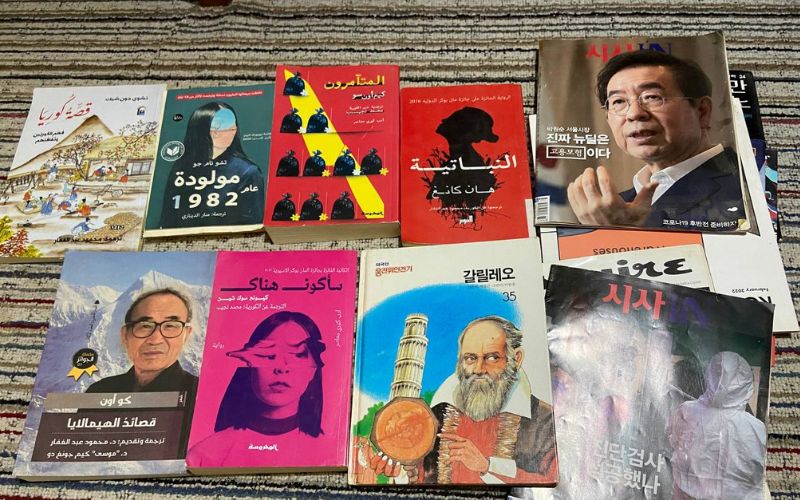
In addition to that, among the most important series that deepen understanding of Korean culture is the Understanding Korea series, published by the Academy of Korean Studies. It includes numerous volumes covering Korean culture and history, with titles on major historical events, influential figures, women’s social status, heritage, the arts, and other diverse topics. The books are available free of charge for download and reading through the academy’s website.
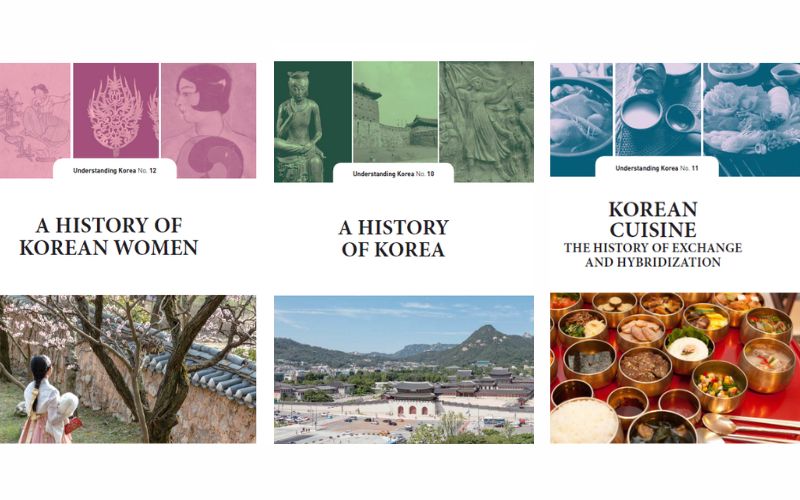
Since interaction and events are what spark enthusiasm and connect people to literature and culture, the Korean Cultural Center has made it a priority to organize various literary events over the years. These activities increased notably after Han Kang won the Nobel Prize in Literature. Among the most memorable and closest to my heart was the writer Kim Un-su’s seminar in 2022 at the Misr Public Library, where he discussed his career and works, particularly his novel The Plotters. Before the seminar, the KCC distributed printed copies of the novel, and I got the author's signature after the event. Despite its heavy theme, this novel became one of my favorites and changed my perception of Korean literature, which I had previously thought was limited to specific topics.
Another memorable event was the seminar with author Jung Yoo-Jung in 2023, one of Korea’s most prominent writers of crime and mystery. The event drew my attention to the unique mindset of Korean female writers and their strong presence in the literary scene compared to other Eastern countries.
The most recent event was a special celebration for World Literature Day, attended by Dr. Mahmoud Abdel Ghaffar, one of Egypt’s most prominent translators and a professor at Cairo University, as well as the Korean writer Baek Min-seok.
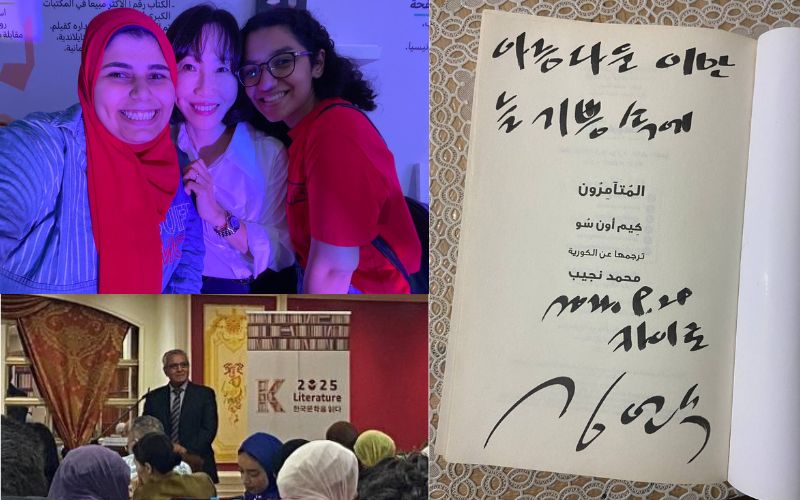
The top highlight of my journey was the six-month Korean literature course held in 2024, divided into two parts. In which we studied simplified versions of original Korean literary works, guided by volunteer teachers from the Korean Language Education and Research Institute in Egypt. The program focused on introducing classics and works from different eras in the original language, helping participants better understand both the Korean literature and the language.
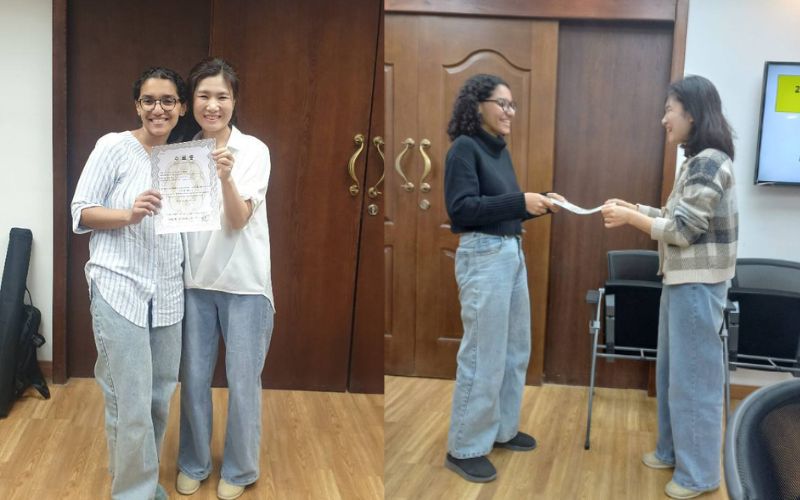
Reading remains the most important way to learn about the culture of nations. With digital transformation, access to books has become easier, providing countries with the opportunity to present their identities to the world. Korea has seized this opportunity effectively, offering invaluable resources for readers to explore Korean literature and gain deeper insight into the Korean mindset.
Keywords:
World Library and Information Congress, IFLA, Understanding Korea, Literature Translation Institute of Korea, Korean Literature Now, Korea.net, Republic of Korea
How about this article?
- Like0
- Support0
- Amazing0
- Sad0
- Curious0
- Insightful0


